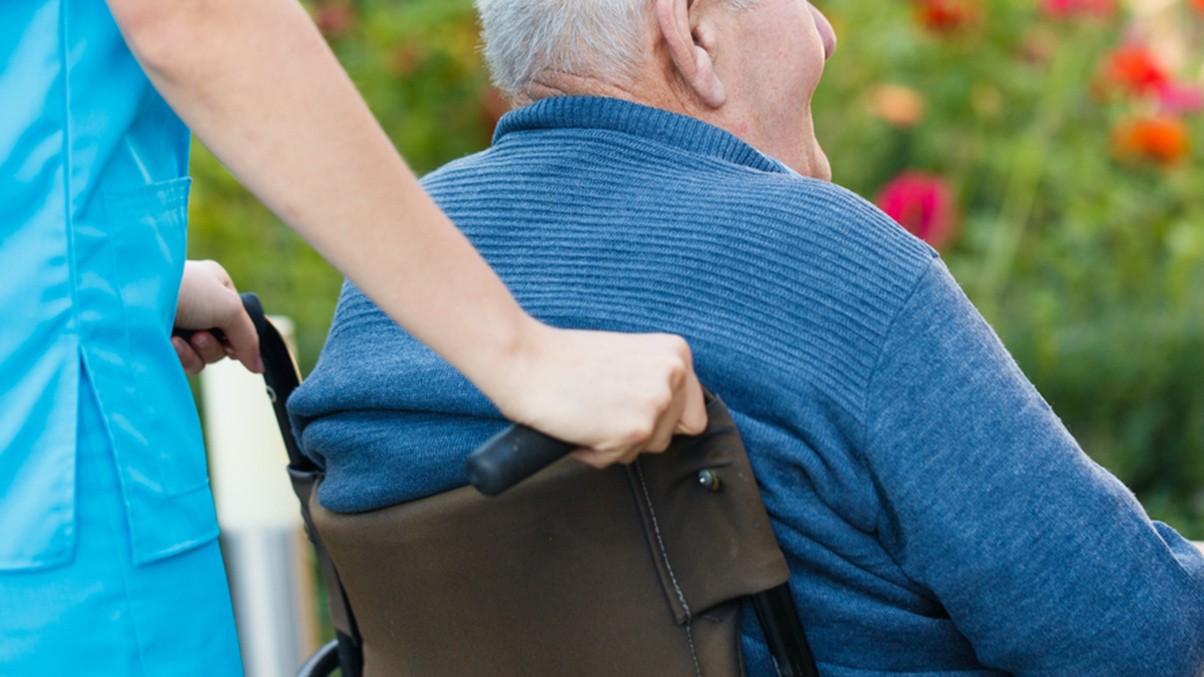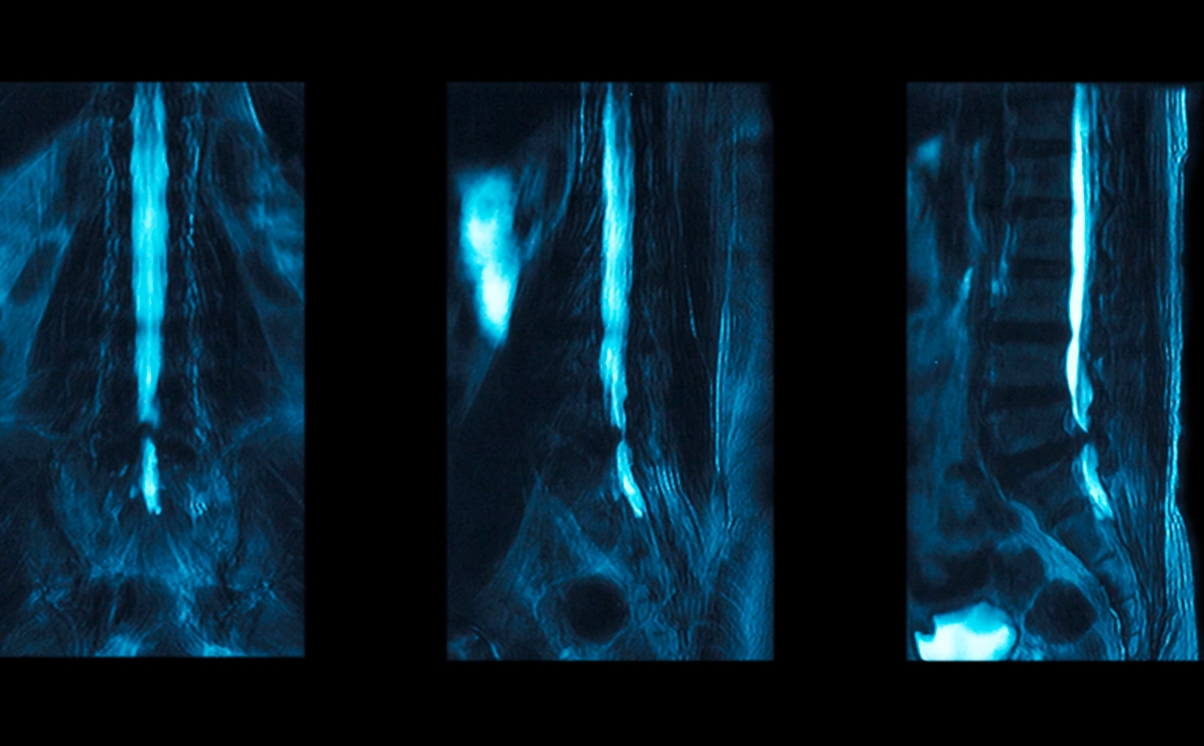Stewarts acted for CF, a 60-year-old female, in a clinical negligence claim regarding a failure by paramedics to immobilise her spine, which resulted in incomplete paraplegia.
The injury
Before her injury, CF led a very active life and worked as a teaching assistant in a local primary school. She spent much of her free time going on long hikes with her husband.
In May 2015, CF fell down a full flight of stairs at her home when getting up in the night to use the toilet. CF’s husband called an ambulance after he discovered her lying at the bottom of the steps. He was told not to move his wife. Following the arrival of the paramedics, CF was able to tell them that she had pain in her back, but she could still feel and move her legs.
After examining CF’s injuries, the paramedics manoeuvred her onto a slide sheet and dragged her into a bedroom where there was more space. Once in the bedroom, the paramedics manoeuvred CF from a lying down position into a sitting position with her back against the bedroom wall. At this point, CF suffered a significant neurological deterioration, losing all sensation and movement in her legs. CF was taken to hospital and underwent surgery as she had fractured her L1 vertebra.
Following surgery, CF was transferred to the Royal National Orthopaedic Hospital, where she was diagnosed with incomplete paraplegia. She underwent intensive rehabilitation to enable her to use a wheelchair and eventually walk again with sticks. Her recovery was slow and gruelling.
As a result of her injuries, CF was forced to give up her job, which she had loved. Her mobility and balance have been severely affected, and she is now reliant on two walking sticks and a wheelchair when outside. She has some bladder and bowel dysfunction. She also experiences wrist pain caused by the use of walking aids. As a result of her wrist pain and impaired mobility, she has difficulty completing everyday tasks around the house without assistance. She found it hard to adjust to life following the injury and has episodes of depression.
Instruction of Stewarts
CF’s case was taken on by Stewarts, with Stewart Young, a senior associate in the clinical negligence team, conducting her case.
The NHS Trust carried out an internal investigation, which concluded that the paramedics had inappropriately moved CF. A claim was brought against the NHS Trust regarding the failure to immobilise CF’s spine following the fall. Supportive independent expert evidence was obtained from a paramedic and neurosurgeon. The expert evidence was that the paramedics should have considered a potential spinal injury and immobilised CF’s spine. When the paramedics pulled CF up into a sitting position, the fractured vertebra compressed the spinal cord causing a permanent spinal cord injury. It was alleged that had CF’s spine been properly immobilised, she would have avoided her paraplegia and would have been able to walk normally without aids.
The litigation was long and stressful for CF, largely due to the defendant’s conduct throughout the case. Despite the findings of the trust’s internal investigation, when a claim was brought, it was vigorously defended. The paramedics said that CF had caused the neurological deterioration herself by standing up and going to the toilet against their advice. On that basis, the defendant alleged contributory negligence against CF.
Settlement
Despite denying liability and robustly defending the claim for four years, the defendant agreed to attend a joint settlement meeting in December 2019, just five months before a liability trial in the Royal Courts of Justice. At the meeting, the defendant conceded a liability settlement of 80% in CF’s favour, which factored in that she would not have made a perfect recovery from the L1 burst fracture even with appropriate treatment.
Subsequently, the parties set about valuing the claim, which involved obtaining expert reports in the fields of spinal rehabilitation, care and occupational therapy, physiotherapy, psychology, accommodation and forensic accountancy (regarding her pension loss claim). Following a second joint settlement meeting in March 2021, a settlement of £2m was agreed. This damages award will enable CF to move to a single-level house and obtain the care and therapy she needs for the rest of her life.
Testimonial from CF
“We felt at ease and comfortable working with Stewarts. It was a stressful time, particularly having to read and relive the accident reports for my case, but the team was always caring and sensitive and made sure we understood everything.
“Since receiving the settlement, it’s cut our stress levels in half. I’ve felt more relaxed, and I’m not so worried about the future. It’s a relief. Stewart Young did his utmost to put our minds at rest and went over things until we understood.
“Covid-19 has put some of my activities on hold but, prior to lockdown, I was doing aquafit. If I can get that back when everything returns to normal, it would be great. The instructors were aware of my injuries, so they would tailor and guide the classes based on my needs.
“Walking is still my main form of exercise at the moment. I use sticks to get around and try to go for a walk every day. There are plenty of good walks around where we live, and there are lots of benches along the way so I can stop and sit down for a rest. It’s good to keep moving. I like doing exercise and feeling that something is happening. It makes me feel better and more in control.
“Knowing that we now have the money there for when things possibly get worse, or if I need more care, stops me worrying so much.”
You can find further information regarding our expertise, experience and team on our Clinical Negligence page.
If you require assistance from our team, please contact us or alternatively request a call back from one of our lawyers by submitting this form.
Subscribe – In order to receive our news straight to your inbox, subscribe here. Our newsletters are sent no more than once a month.





